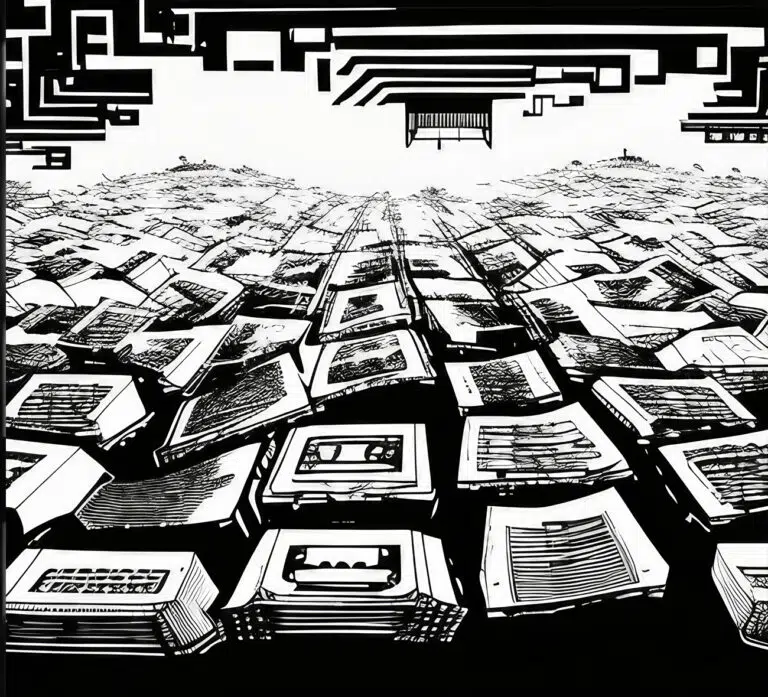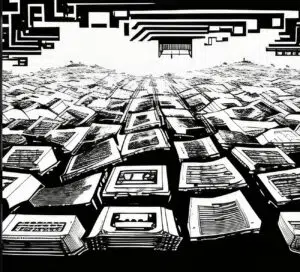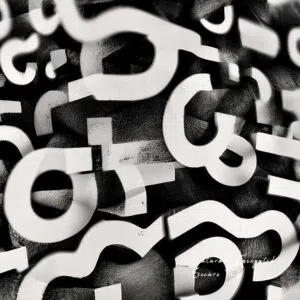New technologies always come in stages. And two of the most important ones are when the world knows about it and when the world adopts it. They might refer to the technology discovery and technology adoption by the public.
Blockchain technology has just passed its discovery stage in recent years, since the invention and the launch of Bitcoin a decade ago, and it shocked the world with its speculative potential that is widely spread by the news to the public. Banks are starting to offer cryptocurrency-related services to provide exposure to their clients. Governments are beginning to research and study the implementation and use of Central Bank Digital Currency to leverage the technology and prevent themselves from leaving behind the future.
NFTs, or what we should call the NFT technology, also just passed its discovery stage last year. The first NFT Quantum was created in 2014, and the first 10,000 Ethereum NFT collection Cryptopunks was created in 2017. In 2021, the world went crazy with all the collections, speculations, auction prices, celebrities’ adoption, etc. Many hypes have been a factor in the rise of NFTs. Still, the world is looking for the actual utility to become the catalyst for the mainstream adoption of the technology.
Digital Ticketing
Regarding real-world utility, digital ticketing is always the first to pop up in mind. It is not only because of the current market size of digital ticketing, but also how NFT technology could tackle some of the pain points of digital ticketing, and offer a better experience to users.
Here are some examples.
Checking Records
As NFTs live on the blockchain, users can track the sale and transaction history from the ledger system. Users can easily confirm whether they are looking at the actual ticket on the selling platform to ensure they have spent the real money. The transaction history also serves as proof of purchase and ownership of the ticket.
For event organizers, it would be easy to check the ticket’s legitimacy, as the blockchain ledger is easy to access for everyone. As the blockchain is not controlled by any parties and is open publicly, it is safer to trust and more reliable to use than private systems or platforms.
Inflating prices in the secondary market
One of the significant ticketing issues is the inflating prices in the secondary market. It is easy money for speculators as they only need to spend some time and profit from real fans and participants of the event. KYC is one of the solutions that is used currently. However, it causes some problems, making purchases more complicated and time-consuming. It also made it hard for buyers to transfer tickets to others, such as family
members and friends, not for speculative reasons.
NFT ticketing solved the above issue with the smart contract capability. Smart contracts enable setting prices for the NFT tickets, in which a fixed price can be set for both the primary and secondary markets. Real fans and supporters can be protected from inflating the prices of tickets.
In the case of transfer, the smart contract can also introduce a royalty payment to event organizers. So when a ticket is transferred to new owners instead of being purchased, a fee is also charged to protect event-holders’ rights.
The smart contract can also introduce more functions. For example, an inflating range of 30% on the price for the secondary market can be possible too. The settings will be well-executed and immutable as long as it is written in the smart contract.
Immersive experience
Tickets always only serve as entrance access to the event, where no other extended utility was given. NFT tickets could offer a more immersive experience to holders. For example, it acts as access to the backstage area, eligibility to purchase merchandise, redeemable for souvenirs, and locating addresses for potential drops. As the world is more immersed in virtual experiences, the NFT ticket would be the perfect medium for users to enter the virtual experience of the event, bringing more utility to the ticket itself.
CRM tool
Customer Relationship Management is the key to business success, especially for brands, artists, and creators relying on fans and customer bases. NFT tickets also act as a natural CRM tool for event holders. With the help of NFT, event holders could easily collect the wallet addresses of participants. Organizers can easily notify them by dropping details of the following events. NFT tickets can also act as an engagement tool, with campaigns or airdrops, to bring more activities and engagement to the community.
Rewarding creators and producers
Ticket sales are the primary income source of an event. NFT tickets can potentially reward artists, event organizers, and other stakeholders with recurring royalties. The split distribution, target addresses, bonus according to sales amount, etc., can all be set with smart contracts and executed automatically. This would give organizers and stakeholders more incentives to boost ticket sales, as they will be rewarded for their effort.
More, handling funds is always troublesome and requires special care. NFT tickets with all transactions on-chain would be more accessible for organizers to trace all the related monetary activities. With the help of smart contracts, fewer operation procedures are needed relating to profit splitting, calculation, and delivery. That is way easier to hold events and settle money stuff.
Art and collectibles
Last but not least, an NFT ticket is a natural platform for organizers to insert Art elements into their events. NFT gained huge attention last year with the presence of art and digital collectibles. With the real-world utility mentioned above as a ticketing service, adding an art element would make itself more different from traditional ticketing services.
Imagine you are a fan of your favorite boy band. They are good at singing, and I assume you never consider their painting skills. They are selling NFT tickets for their next concert with covers of 8 editions of paintings, each created by 8 of the members. Whether good-looking or not, it will surely be memorable and unique, and fans will love it.
On the other hand, an event organizer can also collaborate with artists for their NFT ticket art creation. This also gives more elements and value to the event and tickets themselves, which work great for both.
The ticket itself could become a memorial item for the ticket holder, serve as a collectible in their wallet, and turn the ticket into a long-term asset instead of a one-off disposable.
Final thoughts
Just so many advantages to the use of NFT on ticketing. And I believe event organizers are looking for an easy entry to adopt this new technology. The NFT ticketing market will be worth $68 billion by 2025. Builders are rushing to secure a piece of the cake.






